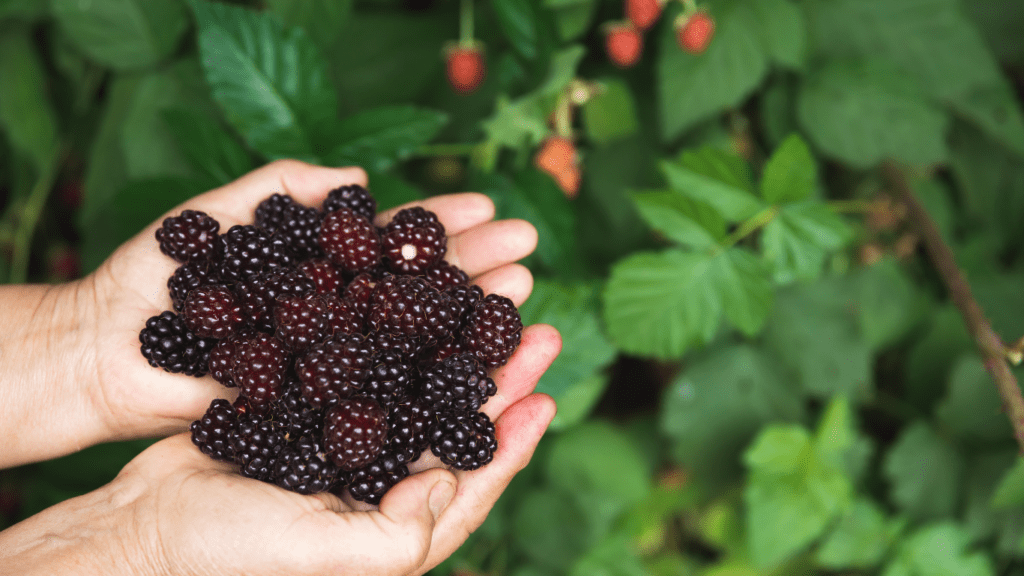In the bustling concrete jungles of today’s cities, finding solace and tranquility can sometimes feel like an impossible task. However, amidst the urban chaos, there lies a hidden gem that not only brings a touch of greenery but also offers a natural remedy for the mind – urban gardening. As someone who has experienced the transformative power of nurturing plants in a city setting, I can attest to the therapeutic benefits it brings.
In this article, I’ll delve into the world of urban gardening and explore how this simple yet profound activity can be a powerful tool in combating feelings of depression and anxiety. From the joy of watching seeds sprout to the satisfaction of harvesting your own fresh produce, urban gardening offers a sense of accomplishment and connection to nature that is truly unparalleled. Join me on this journey as we uncover the healing potential of urban gardening in fostering mental well-being amidst the urban hustle and bustle.
The Connection Between Urban Gardening and Mental Health
Urban areas often face a mental health crisis due to the fast-paced and stressful environment. The lack of green spaces and exposure to nature can contribute to feelings of depression and anxiety in city dwellers.
The Mental Health Crisis in Urban Areas
Urban areas experience a high prevalence of mental health issues such as depression and anxiety. The fast-paced lifestyle, overcrowding, and limited access to nature can exacerbate these conditions. Urban gardening provides a much-needed escape from the concrete jungle, offering a therapeutic retreat for individuals struggling with their mental well-being.
The Psychological Benefits of Gardening
Gardening has been shown to have numerous psychological benefits, including reducing stress levels, improving mood, and boosting self-esteem. Engaging in gardening activities releases endorphins, the feel-good hormones that help alleviate symptoms of depression and anxiety. The sense of accomplishment from nurturing plants and seeing them thrive can significantly enhance one’s mental health and overall well-being.
Understanding Urban Gardening
Let’s delve into the concept of urban gardening and explore its potential therapeutic benefits.
What Is Urban Gardening?
Urban gardening refers to the practice of cultivating plants in urban areas, such as rooftops, balconies, or community plots. It’s a way to bring greenery into city spaces and create mini oases within urban jungles. This form of gardening allows city dwellers like me to engage in horticulture despite limited space, fostering a connection to nature right at our doorstep.
Types of Urban Gardens
In urban settings, various types of gardens cater to different preferences and constraints. Community gardens are shared spaces where individuals come together to grow plants collectively, promoting a sense of community. Rooftop gardens utilize unused roof spaces for cultivation, maximizing limited land availability. Vertical gardens, on the other hand, involve planting on vertical structures like walls, adding a touch of greenery to urban landscapes. These diverse urban garden types offer opportunities for city residents to immerse themselves in gardening practices and reap the associated mental health benefits.
How Gardening Helps Combat Depression
Gardening is a powerful ally in the fight against depression, offering a range of benefits that can positively impact mental health.
Exposure to Nature and Mental Wellbeing
Being immersed in nature through urban gardening can significantly boost mental wellbeing. The therapeutic effects of green spaces have been well-documented, with studies showing that spending time around plants and flowers can reduce stress levels and improve mood. By engaging in gardening activities, individuals can experience a sense of calm and relaxation, fostering a positive outlook on life.
Physical Activity and Its Impact on Depression
Engaging in gardening involves various physical activities such as digging, planting, and watering, which contribute to increased physical movement. Physical exercise, even in the form of light gardening tasks, has been linked to a reduction in symptoms of depression. The act of tending to plants not only promotes relaxation but also aids in releasing endorphins, the body’s natural mood elevators. As a result, urban gardening serves as a dual-purpose activity by providing both mental and physical health benefits.
Implementing Urban Gardening in Your Life
Getting Started with Urban Gardening
When starting urban gardening, it’s essential to begin with a solid plan. Choose the right plants based on your region’s climate and the available space in your urban setting. Select plants that are easy to grow and maintain, such as herbs, leafy greens, or cherry tomatoes. Gather the necessary supplies like pots, soil, seeds, and gardening tools. Remember to place your urban garden in an area with adequate sunlight for optimal plant growth.
Tips for Maintaining an Urban Garden
To maintain your urban garden successfully, ensure regular watering and proper drainage for your plants. Monitor the soil’s moisture levels and adjust watering frequency accordingly. Keep an eye out for pests and diseases that may affect your plants and take prompt action to address any issues. Prune and harvest your plants regularly to promote healthy growth and prevent overcrowding. Lastly, continue to learn and adapt your gardening techniques based on the specific needs of your urban garden for a flourishing green space.
Case Studies and Success Stories
Examples of Urban Gardening Impacting Mental Health
In my research, I discovered compelling instances where urban gardening has significantly impacted mental health:
- A study conducted in a densely populated urban area revealed that residents who engaged in community gardening reported lower levels of stress and improved overall well-being.
- Another case documented the journey of an individual battling depression, whose involvement in urban gardening provided a sense of purpose and accomplishment, leading to a noticeable uplift in mood and motivation.
These examples illustrate the profound positive effects that urban gardening can have on mental health, showcasing its therapeutic potential in combating depression and enhancing emotional wellness.

 Joseph Hood is an integral part of the project team, specializing in renewable energy and sustainable technology. His expertise in solar energy systems and energy efficiency plays a crucial role in shaping the project's goals and initiatives. Joseph actively collaborates with fellow team members to explore innovative solutions for reducing carbon footprints and promoting cleaner energy sources. His enthusiasm for public education ensures that community members are informed about the benefits of renewable energy, reinforcing the project's mission to create a more sustainable future.
Joseph Hood is an integral part of the project team, specializing in renewable energy and sustainable technology. His expertise in solar energy systems and energy efficiency plays a crucial role in shaping the project's goals and initiatives. Joseph actively collaborates with fellow team members to explore innovative solutions for reducing carbon footprints and promoting cleaner energy sources. His enthusiasm for public education ensures that community members are informed about the benefits of renewable energy, reinforcing the project's mission to create a more sustainable future.